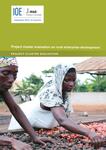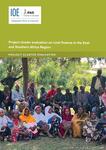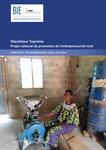Page Header
Coastal Climate-Resilient Infrastructure Project
Overview
The Project Performance Evaluation (PPE) of the Coastal Climate-Resilient Infrastructure Project in Bangladesh began in February 2020, just before the Covid-19 pandemic took hold. In light of the travel bans and social distancing requirements introduced to fight the pandemic, IOE decided to change its approach in conducting the PPE to perform its first fully remote evaluation. Various adaptations were made to address the associated methodological, practical and ethical concerns; among these adaptations were the leveraging of national consultants and of the opportunities provided by modern technologies, especially GIS and satellite images. The evaluation found that the project was implemented well and attained its core objective of building infrastructure resilient to natural disasters and the impacts of climate change, a crucial achievement considering the increasingly severe effects of extreme climate events in the project area. Improved road and market infrastructure led to more vibrant rural communities and markets, and enhanced household incomes. However, wider effects on agricultural production and livelihoods were limited due to project design issues and limited coordination between development partners. For the future, the report’s recommendations include accompanying investments in infrastructure with broader support for climate-resilient livelihoods, tailored to the project area context; activities to enable value chain development and enhance women’s participation in labour markets should also be undertaken. In infrastructure development projects, IFAD should ensure that conditions for mainstreaming a comprehensive approach to climate resilience are in place.Report Details
| Year Published | |
| Type | |
| Joint | No |
| Partner/s | N/A |
| Consultant name | Sally Smith - Roberto La Rovere |
| Agency Focal Point | Fabrizio Felloni |
| Focal Point Email | f.felloni@ifad.org |
| Managed by Independent Evaluation Office | Yes |
| Country/ies |
YOU 'RE READING
Coastal Climate-Resilient Infrastructure Project











